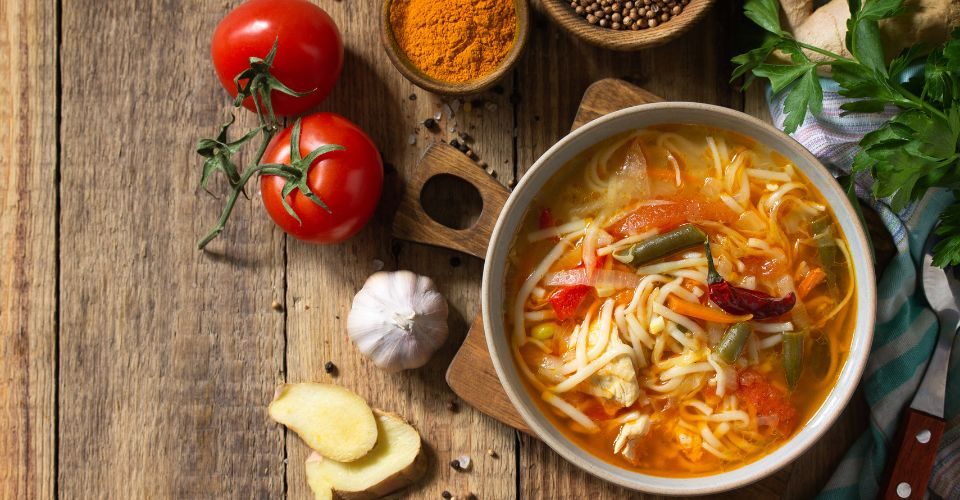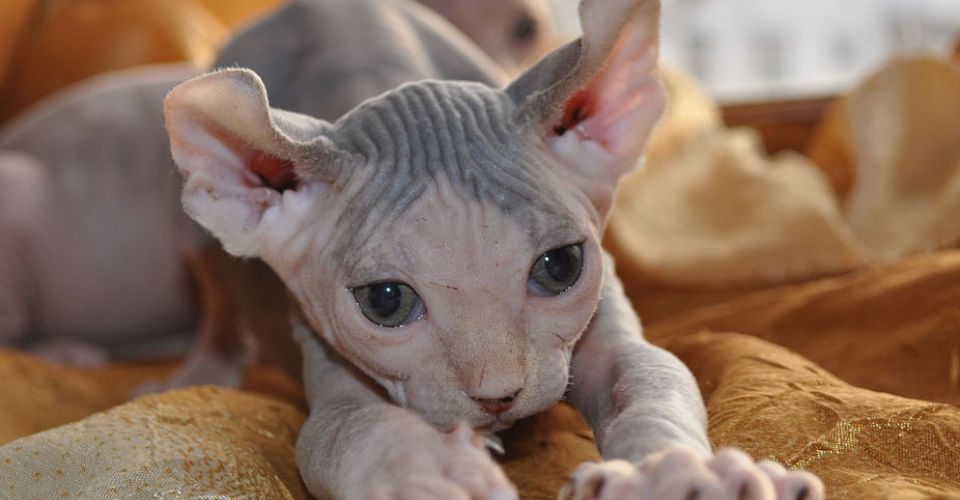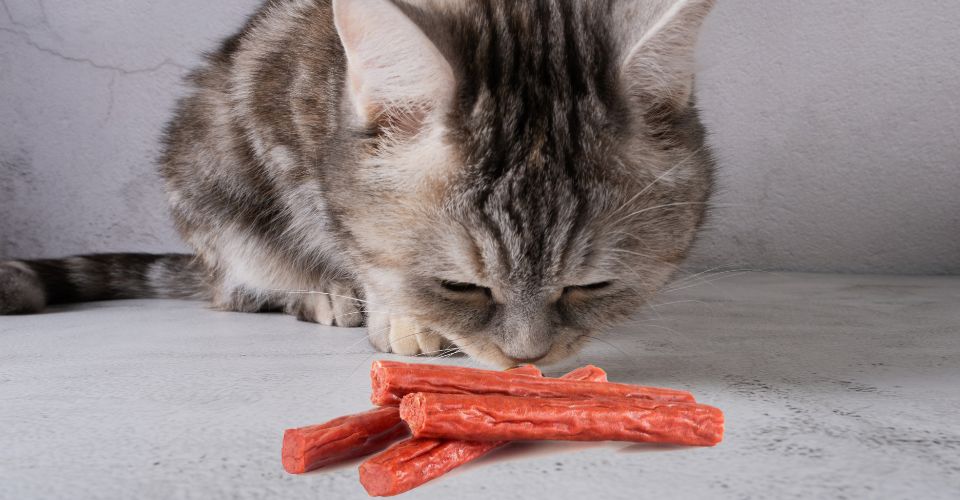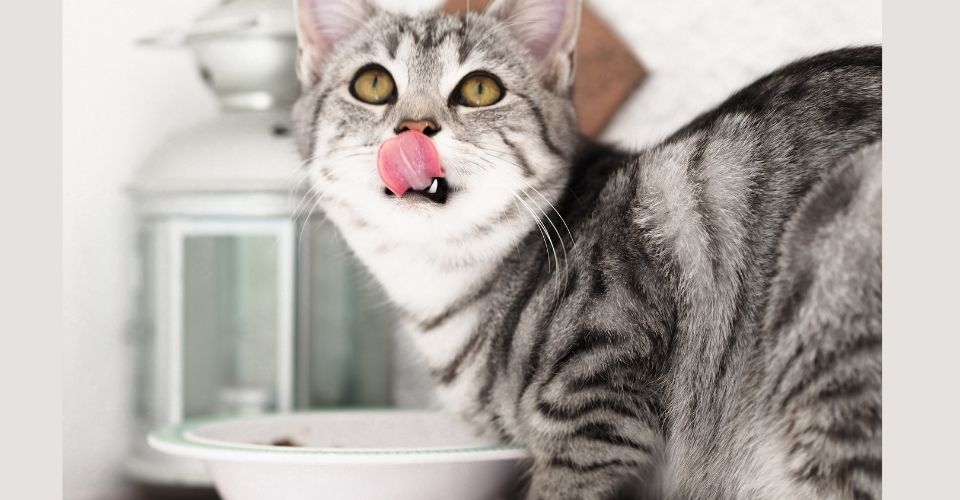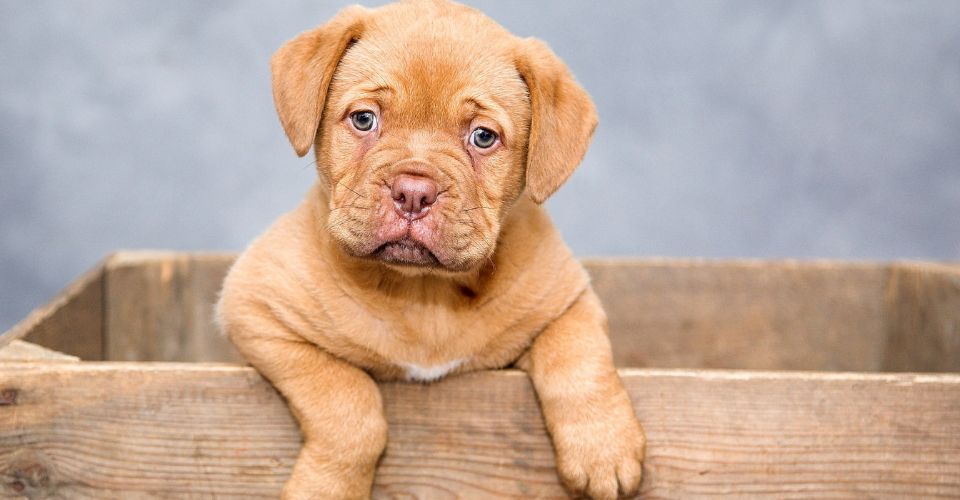People say they discovered a capacity to love they never knew until they had kids, but have they had pets? Love oozes out of your heart when you set your eyes on them. Oh, the dilemma when two begging eyes demand your food. You have to ask yourself, is it okay to share this food with them?
If it is chicken noodle soup, you might wonder: Can cats eat chicken noodle soup? What are the benefits and risks associated with cats eating chicken noodle soup?
Read on as we discuss the question in depth below.
Can Cats Eat Chicken Noodle Soup?
No, cats cannot eat chicken noodle soup, no matter how enthusiastically they come running after it. And it is for their good. While it is perfectly fine to let them munch on some cooked chicken shreds and even enjoy an occasional serving of plain, bland homemade chicken broth. But giving them chicken noodle soup could pose serious harm to their well-being.
While the two aforementioned ingredients are great for your cat’s health and a tasty treat indeed, the other ingredients—salt, scallions, garlic, and all the seasonings—won’t go very well with the feline stomach. Onions, garlic, and chives belong to the allium family and happen to be potentially poisonous for them if consumed in large amounts. Not to mention the high amount of salt and other seasonings, which again are not healthy for the cat.
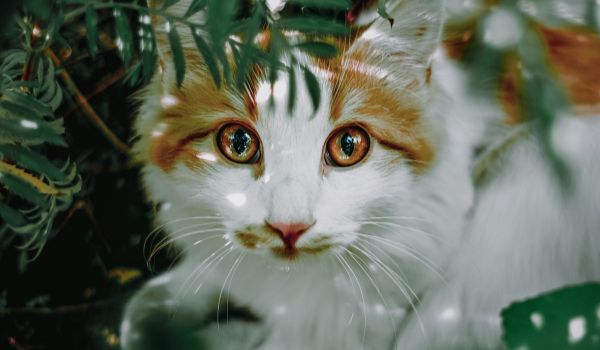
Why Can Cats Not Eat Chicken Noodle Soup? Ingredient Breakdown
Okay, so we have briefly gone over the reasons why chicken noodle soup is not a potential meal or even a treat for your kitty. Let us dive in a bit deeper to understand what’s wrong with sharing our favorite food with our favorite individuals. We will explore the common ingredients that go into any chicken noodle soup recipe and explain why you should not be giving it to your cat.
Can Cats Eat Onion?
Onion is one of the most commonly used vegetables in any chicken noodle recipe. But when it comes to your cats, any food that features this vegetable is a big no-no. Onion belongs to the Allium genus of plant species, which according to the American Society for the Prevention of Cruelty to Animals, is toxic to cats (and dogs).
Known for its strong flavor, it is a versatile vegetable that can be enjoyed in a thousand different compositions and combinations. Besides earning a name for its culinary wonders, it has also established itself for its medicinal uses. But the flavorful vegetable can wreak havoc on our small pets.
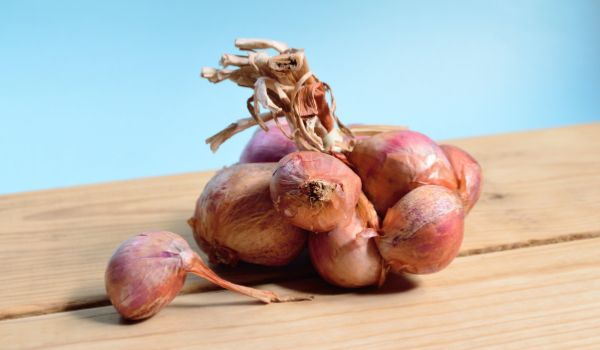
Onions are of particular importance when it comes to plant-toxicology in small animals. They are notorious for harboring certain organ sulfoxides, which on the one hand, lend them their characteristic taste and, on the other, pose oxidative damage to the hemoglobin structure. As a result, the oxygen-carrying hemoglobin is damaged, leading to anemia and, in the worst cases, even death.
Consuming onions equivalent to 0.5% of their body weight at one time can lead your kitties to develop onion toxicosis while ingesting 600 – 800 g of the plant in a single go or distributed over a couple of days could end up causing them to develop hemolytic anemia. Naturally, any product that may have onions, whether in solid or powdered form, would be detrimental to the health of your cat and must not be given.
Can Cats Eat Garlic?
Absolutely not. Just like the onions, garlic too belongs to the alliums and therefore is toxic to the cats. They too carry the organosulfoxides responsible for the detrimental effect on cats. Considered slightly less toxic than onions, garlic still manages to induce harmful effects in cats, though less so among dogs when not taken in large doses.
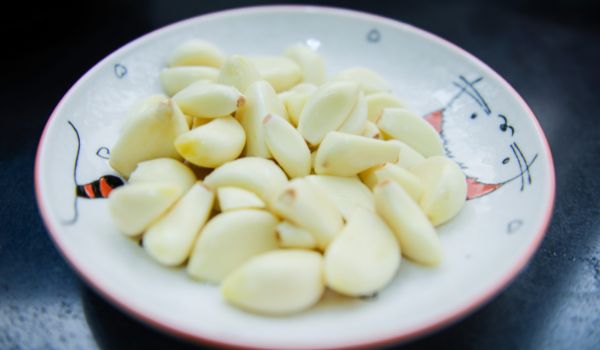
Initial signs of garlic (or another allium) consumption, besides a categorical garlic/onion breath, include;
- Diarrhea
- Vomiting
- Appetite loss
- Abdominal pain
- Dehydration
- Depression
Signs of damage to the red blood cells and the ensuing anemia appear a few days after ingestion.
When the cats first ingest alliums, they are converted to highly reactive oxidants, which end up damaging the hemoglobin. The denatured hemoglobin thus called a Heinz body triggers further destruction of the hemoglobin cells, leading to a condition called hemolysis. The Heinz bodies are then removed from the body prompting feline anemia.
The situation is further aggravated by allicin and ajoene, the pharmacologically active agents found in garlic. Both have a solid capacity to lower blood pressure and reduce blood clot formation, compounding the effects of anemia.
Can Cats Eat Salt?
Salt is a controversial ingredient in veterinary science regarding pet food. Many have called for limiting its use in pet food (consequentially cat food) for the linkage of sodium to cardiac and other diseases in the human context. However, research to ascertain the negative implications of salt on feline health has proved inconclusive.
But when we look at the interest cats show in salt-flavored food, we find that they do not bother when it’s not there. Not only do they not seem to have any appetite for salt, but they tend to feel thirsty when consumed.
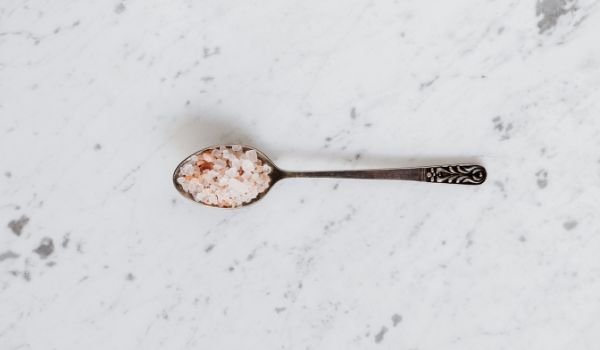
The Association for American Feed Control Officials (AAFCO) standards for cat food limit the sodium content to 0.2% and chloride to 0.3% (both constituents of salt) of the total dry matter. It suggests that the authority responsible for pet food standards does not believe it prudent to feed them too much salt.
Also, consumption of too high a concentration of salt is believed to be poisonous for cats. So, the health concerns and purported controversy has led experts to suggest that cats should not be given foods with salt or other artificial flavors.
Can Cats Eat Seasonings?
It is not just the major ingredients in the chicken noodle soup that pose serious health risks to cats, but some of the smaller constituents could also be of consequence. Spices and herbs that make so much difference in our foods, adding to the richness of flavor in our foods, can have toxic effects on our pets.
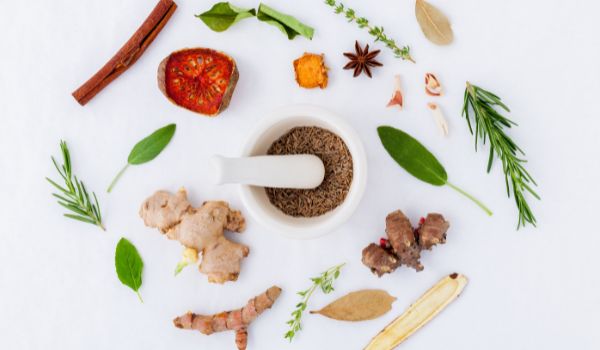
Spices like black pepper and cayenne pepper have a strong aroma and flavor, which the cats may not appreciate. These are not part of their natural diet, could be harmful to their stomach, and may have negative implications for their health.
Spices like cinnamon and nutmeg are also known to disturb the stomach. The former could cause hyperactivity, stomach and throat irritation, and quickened heart rate if consumed in large amounts, while nutmeg exposure may induce irritation, vomiting, pupil constriction/dilation, difficulty in mobility, increased heart rate, and hallucination.
Can Cats Eat Noodles?
The short answer: Yes, sometimes they can, but just a small, boiled, unseasoned portion comprising of a few noodles. While we love the food item in all its flavorful variations and have enjoyed trying new recipes when COVID forced us indoors, it is not entirely cut for our kitties. First, noodles are primarily carbs—not whole carbs but refined—which means less fiber for the stomach and more sugar for the bloodstream.
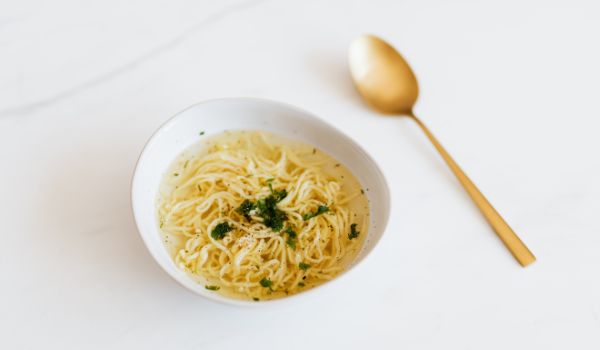
Why is it bad for the cat? Because cats are obligate carnivores that rely primarily on meat for their nourishment. So, their stomach is not designed to digest a lot of carbs. Add to it the fact that cats only need minute quantities of carbohydrates in their system.
So, it seems counterintuitive to feed them noodles when they could be better nourished by consuming a balanced diet formulated under the guidelines of veterinary nutritionists. However, it is technically fine to share some unflavored boiled noodles if you feel like it or if your cat likes them.
Which of the Ingredients of a Chicken Noodle Soup Can Cats Eat?
So far, we warned against the dangers of feeding your cat a traditional chicken noodle soup. We have shared the harm some of the common ingredients could do to your feline, but it’s not like everything is bad for them. Because some ingredients would make for great cat treats.
Remember that all the foods mentioned should only be given in small portions and sparingly as treats.
Can Cats Eat Carrots?
Carrots are one of the human foods cats can eat. Not only are they tasty and juicy, but they are also chockfull of nutrients. Cats can benefit from the vitamins E & K and the minerals present in carrots, such as magnesium, zinc, and potassium.
Since they are carnivores, they would not rely on plant sources to fulfill their nutrition demands, but snacking on small cubes of carrots once in a while would not harm them.
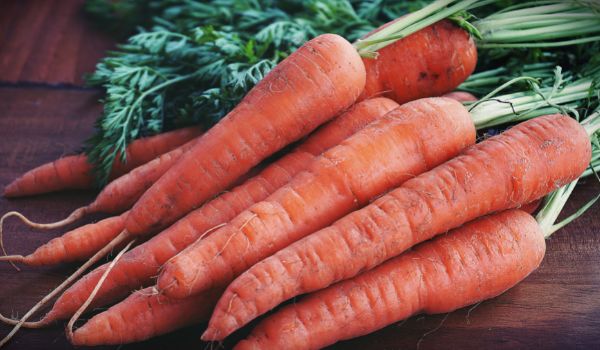
Can Cats Eat Celery?
The crunchy herb invariably finds its way into our salads, meals, stews, and soups thanks to the punch of flavor it adds. And if your cat is smitten, you may share some of this goodness with it. Its higher water content could help keep it hydrated.
Additionally, it could reap the benefits of vitamins A, C, & K, ensuring its good health and a shiny coat, while the calcium, magnesium, and iron could consequently keep its bones fit and promote red blood cell formation.
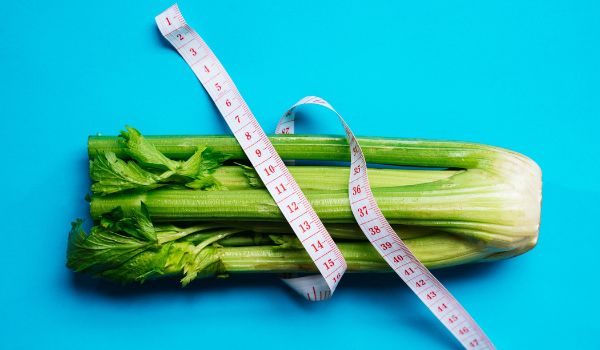
But as too much of everything is bad, your cat should only be fed celery occasionally. Primarily so because, again, it is a carnivore and would need a meat-based diet to fulfill all its nourishment requirements. Also, it is only advised to give the veggie as a snack since it will not be able to offer the balanced diet your cat needs.
Can Cats Eat Chicken?
Sure, yes, cats can eat chicken. In fact, they love eating it. Cats are notorious for their admiration of chicken meat and organs such as chicken liver, gizzard, and heart. So much so that they might leave their food to finish off the meat if offered simultaneously.
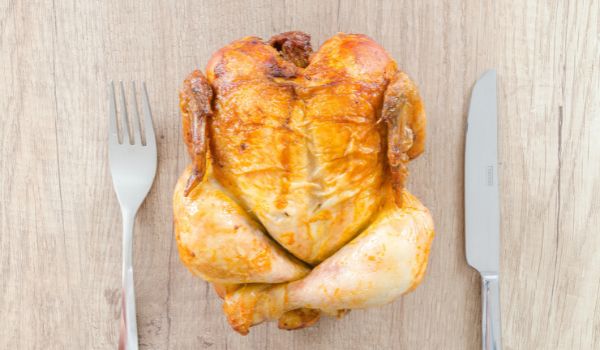
But here is the catch! Chicken meat alone, though cats are indeed carnivores, cannot provide the nutrient balance needed for a cat to thrive. Also, feeding them raw chicken could expose them to pathogens such as salmonella and e.coli. Frozen meat meant for human consumption causes even more trouble thanks to the preservatives.
However, snacks comprising boiled, unflavored chicken meat or organ could be used to your benefit if you are dealing with a picky eater or to entertain your cat with something special.
Can Cats Eat Chicken Broth?
Chicken broth is a palatable, nutritious food that cats can safely enjoy. Not just a yummy treat, it is loaded with nutrients such as proteins, carbs, some fats, vitamins, and minerals. It is used to entice picky eaters to nibble their food more often. It could also be paired with dry cat food for better hydration for your cat or to moisten its regular food.
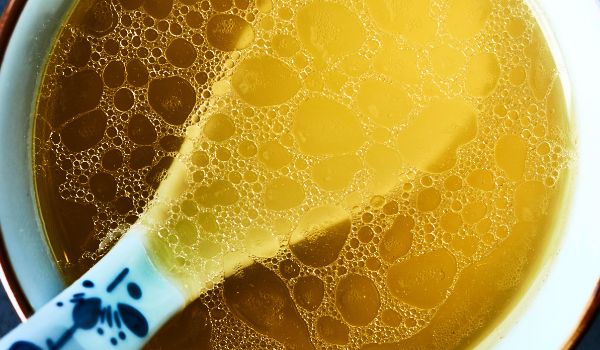
As long as your chicken broth is made simply with chicken and bones, is sieved to remove any bones, and does not contain any preservatives or seasoning, it is perfectly fine. It is wise to consult your vet before you plan such an arrangement.
Furthermore, the decision on how frequently it should be used should be made in consultation with an expert who understands your pet.
Final Word: Can Cats Eat Chicken Noodle Soup?
No, cats cannot eat chicken noodle soup since several of its ingredients—scallions, garlic, salt, and seasonings—are potentially toxic for your little friend. Cooked chicken shreds and plain homemade chicken broth could be offered occasionally to make things interesting. But the entire noodle package can be harmful.

